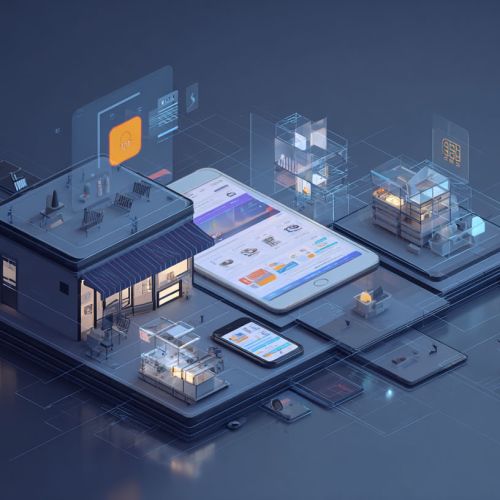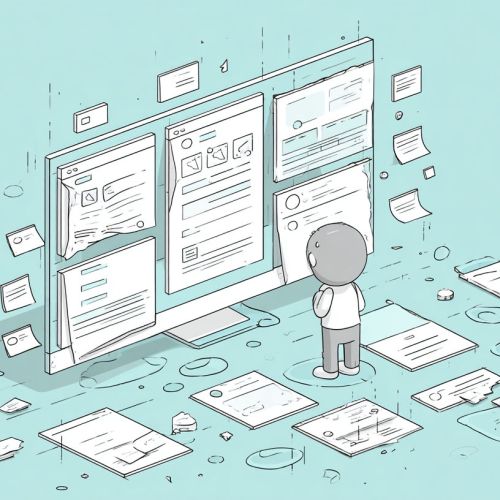In our hyper-competitive digital landscape, every marketing leader is searching for that elusive edge—an AI marketing tool capable of cutting through the noise, aligning complex data, and turbocharging campaign performance.
Imagine working late into the night, overwhelmed by dashboards, spreadsheets, and audience insights spread across disparate platforms, only to discover one AI-powered platform that instantly turns complexity into clarity and strategy into winning execution.
Welcome to the future of marketing, where AI marketing automation tools, precision data-driven targeting, and seamless omnichannel orchestration become your trusted allies in transforming how your brand engages customers.
This article explores why this AI marketing tool has won over mid- to senior-level marketing leaders globally, the business challenges it solves, and how you can harness its full power to accelerate growth and maximize ROI.
If you’re a CMO, CEO, Marketing Director, or tech-savvy decision maker looking for proven B2B AI marketing solutions or ways to optimize campaigns and personalize at scale, read on. The insights here will arm you with practical strategies, expert quotes, and real-world examples that demonstrate how embracing AI-driven marketing is no longer optional—it’s essential.
The AI Marketing Revolution: Why Now?
Artificial intelligence has long held promise across industries, but marketing is where AI is rapidly transitioning from a buzzword to a mainstream necessity. The question is no longer if AI will reshape marketing; it’s how quickly marketers adapt to accelerate results.
The Evolution of AI Marketing: From Niche to Necessity
A decade ago, AI in marketing meant rudimentary automation—like scheduling emails or basic customer segmentation. Today, that landscape has evolved dramatically. Advanced machine learning powers AI-driven campaign optimization, dissecting millions of data points in real time to uncover trends and predict consumer behavior. This evolution is supercharged by breakthroughs in natural language processing, computer vision, and predictive analytics.
Data Overload and Rising Consumer Expectations
Marketers face an avalanche of data from channels—social, email, web, mobile apps—but generating actionable insights from this flood is daunting. Modern consumers expect hyper-personalized journeys at scale, seamless omnichannel experiences, and relevance in every interaction. Meeting those expectations manually is impractical and fraught with inefficiency.
Post-Pandemic Cost and Efficiency Pressures
The global pandemic forced many companies to tighten budgets and pivot rapidly to digital-first strategies. Marketing leaders now juggle increasing deliverables with fewer resources, demanding tools that generate measurable ROI quickly. AI marketing software fills this gap by automating labor-intensive tasks and providing clear attribution data.
The Proof Is in the Numbers
According to Salesforce’s State of Marketing 2023 report, 84% of marketers say AI improved their marketing productivity. From predictive analytics enabling precise customer targeting to AI-powered creative generation slashing content production time, the impact is undeniable.
Expert Insight
Jane Miller, MarTech analyst at Forrester, emphasizes:
“AI’s acceleration in marketing isn’t just a trend—it’s a tectonic shift. Those investing in AI marketing automation tools today will redefine what’s possible in customer engagement and ROI tomorrow.”
Real-World Impact
Consider a Fortune 500 consumer electronics brand that integrated AI-driven personalization into its campaigns in early 2023. Within six months, click-through rates increased by 27%, and customer lifetime value (LTV) saw an 18% uplift—all driven by AI-powered insights that dynamically refined audience segments and predictive customer journey mapping.
Transforming Marketing Strategy with AI Marketing Tool
Deploying an AI marketing tool brings strategic shifts that ripple across marketing operations—from creative ideation to measurable business KPIs.
Accelerating Campaign Speed and Quality
AI enables rapid generation of marketing assets—from email subject lines optimized for engagement to dynamic ad creatives tailored for audiences—shrinking production timelines from weeks to days. This agility lets marketers test more ideas, refine messaging, and stay responsive to market trends.
Real-Time Budget Optimization
Gone are the days of annual budget cycles and instinct-led spend allocation. AI tools provide real-time insight into which channels and creatives deliver the highest ROI, allowing marketers to dynamically shift budgets with precision that humans alone cannot match.
Continuous Testing and Optimization
AI drives frequent A/B testing and multivariate experiments automatically, selecting winning variants instantly. This iterative approach maximizes campaign effectiveness while minimizing wasted ad spend.
Enhanced Attribution and Customer Journey Understanding
Advanced AI analytics decode complex multi-touch attribution models, revealing which interactions truly drive conversions and lifetime value—enabling smarter investments and improving customer experience.
Overcoming Common Hurdles: Integration, Privacy, and Trust
Implementing AI marketing automation tools involves more than technology: it requires organizational readiness and vigilant governance.
Seamless Integration into Existing MarTech Stacks
Marketing leaders worry about disruption. Tackle this by offering pre-built connectors and APIs to ensure smooth data flow between CRMs, analytics platforms, and ad platforms—minimizing downtime.
Data Hygiene and Privacy Compliance
With increasing regulatory scrutiny (GDPR, CCPA), trusted AI tools include privacy-by-design features. Whatever solution you implement, ensure that it anonymizes personal data fields when possible, offers granular user consent management, and maintains audit logs to ensure compliance.
Change Management and Upskilling
For effective AI adoption, marketing leaders must foster a culture open to innovation. Structured learning programs, vendor collaboration, and ongoing workshops help teams build confidence and use AI ethically.
Transparency and Explainability
“Explainable AI” features demystify AI decisions, building trust by showing how recommendations derive from data patterns. This transparency is critical to gaining stakeholder buy-in.
Adoption Barriers
A 2023 CMO survey by Gartner highlighted that 38% of marketers cited integration challenges and lack of AI understanding as top barriers to deploying AI solutions.
Getting Started: A Practical Adoption Roadmap
Successfully adopting an AI marketing tool requires deliberate planning to maximize impact and ROI.
Step 1: Define Clear Goals and KPIs
Identify your priorities—whether it’s improving lead quality, lowering CPA, increasing personalization, or automating repetitive workflows. Clear goals will guide pilot design and evaluation.
Step 2: Run Controlled Pilots
Select a specific use case or campaign segment to trial the tool. Monitor relevant metrics such as CTR, conversion rate, or time savings. Avoid trying to overhaul everything at once.
Step 3: Invest in Training and Upskilling
Leverage vendor-provided resources and conduct internal workshops to ensure teams are confident navigating the tool’s UI and interpreting AI-driven insights.
Step 4: Scale with Continuous Measurement
Regularly review KPIs and iterate tactics. Build reporting dashboards that combine AI outputs with business data for leadership visibility.—
Conclusion
The marketing landscape is transforming at breakneck speed, driven by the promise and power of AI marketing tools that enable efficiency, precision, and personalization like never before. Discovering and adopting the right AI solution can unlock new horizons for campaign performance, customer engagement, and competitive differentiation.
As AI continues to evolve, expect further breakthroughs: generative AI producing ultra-personalized content at scale, hyper-targeted micro-segmentation, and ethical AI frameworks fostering trust between brands and consumers. Marketers who embrace these tools early will not only survive but thrive.
What’s your biggest AI marketing challenge or success story? Share your thoughts!






